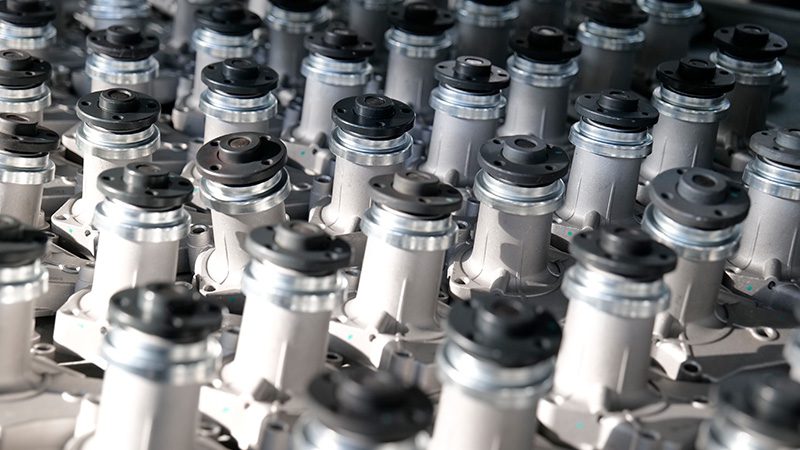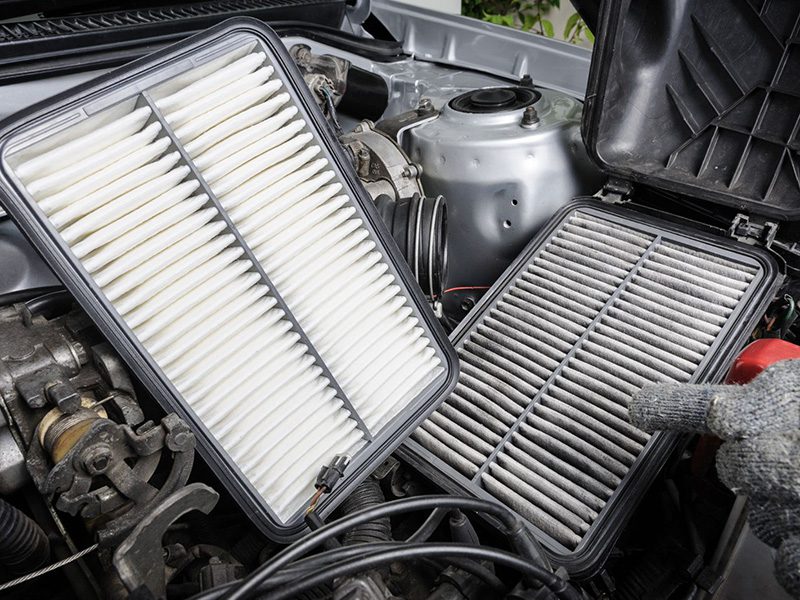Your car’s engine air filter takes in a lot of dust, dirt, and debris while you drive, and with time, it clogs up, and the air flow to the engine becomes restricted. This can choke the life out of your car.
However, if you change it on time, your engine breathes well and runs without any trouble. The tricky part is knowing exactly when it is due for a replacement. The right time depends on your driving habits, the roads you use, and your vehicle’s needs.
In this guide, you’ll find how often to change the engine air filter and the best way to inspect it first.
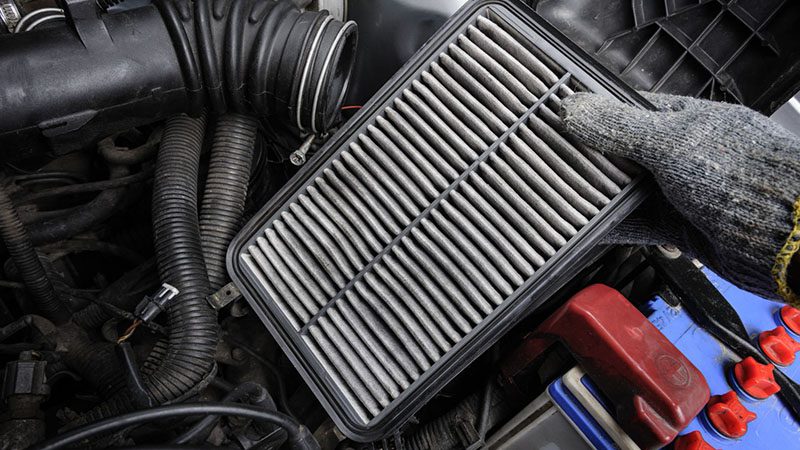
How Many Miles Should You Go Before Replacing the Engine Air Filter?
Most car manufacturers suggest that you should replace the engine air filter within 15,000 to 20,000 miles or 12-18 months, whichever comes first. A few in their owner’s manual claim to do more than 40k or even 80k miles, which can be 3-4 years. But this is a random figure. Your actual interval depends on where and how you drive.
If you use highways quite a lot and avoid dusty areas, the air filter may last longer, anywhere between 20,000 and 40,000 miles. On the flip side, frequent short trips, city drives, or drives on gravel roads can shorten its lifespan, so 6,000–10,000 miles is a safe bet here.
However, a quick check is the only way to confirm that the air filter is good to go.
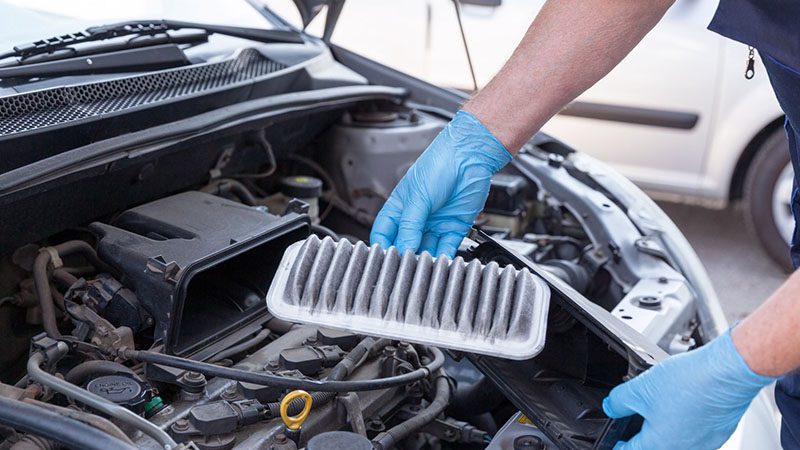
How Do I Know When My Car Engine Air Filter Needs Changing?
The air filter of your car engine stops every type of debris before it reaches the engine. But if it is clogged, it can show you a few symptoms:
Decreased Engine Performance
First off, you have decreased engine performance. As your air filter accumulates more and more dirt, it becomes less effective to let air through. This can starve the motor of the O2 it needs for optimal combustion and operation. The result is sluggish acceleration and an overall reduction in power, which makes your vehicle feel tired and unresponsive.
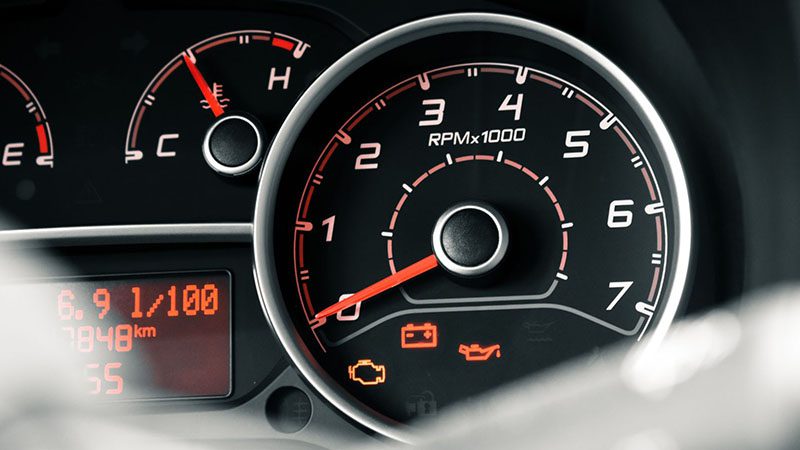
Higher Fuel Consumption
Next on our list is higher fuel consumption. When the air filter is choked, your engine has to put in extra effort to draw in the air it needs. This additional effort burns more fuel, which means you start to notice your gas mileage takes a dip. If your trips to the gas pump are more than usual, it might be a good idea to check your air filter.
Check Engine Light
The third symptom is the dreaded check engine light. Your engine sensors are designed to expect a certain level of airflow. If a dirty filter disrupts this flow, it can trigger the check engine light and send you into a panic. The codes it sets are often related to airflow or fuel trims, so don’t be too alarmed.
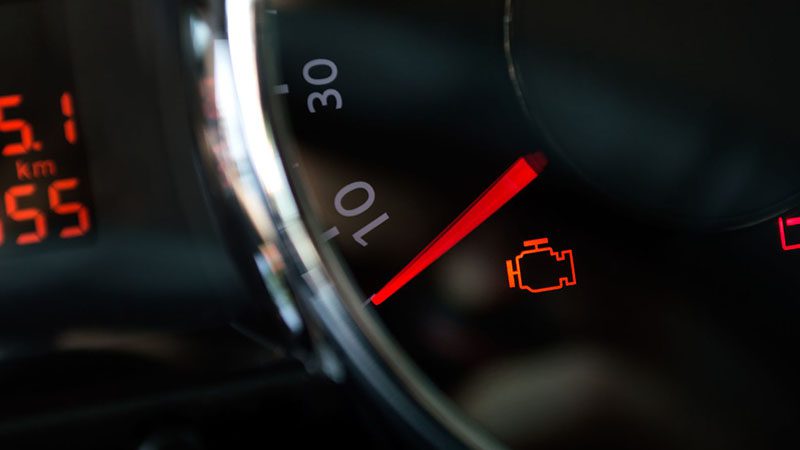
Strange Smells from Vents
Fourth is the strange smells coming from the vents. If your cabin air filter is clogged, outside odors and pollutants can sneak their way into your car. So, if you start noticing unusual smells like mildew, exhaust, or chemicals when your ventilation system is turned on, it might be time to inspect that filter.
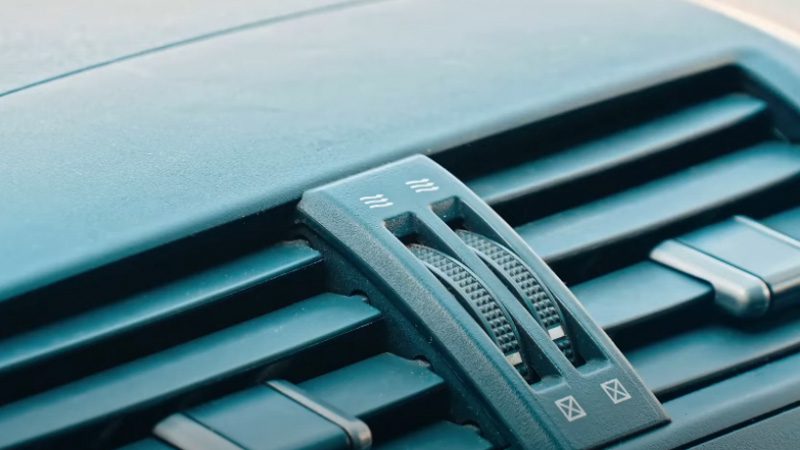
Engine Surging or Misfiring
Finally, the fifth symptom is engine surge or misfire. A choked air filter can cause uneven airflow and fuel delivery in the engine, and cause occasional surges or misfires. If your engine’s performance seems inconsistent, it’s a good sign that a filter change is due.
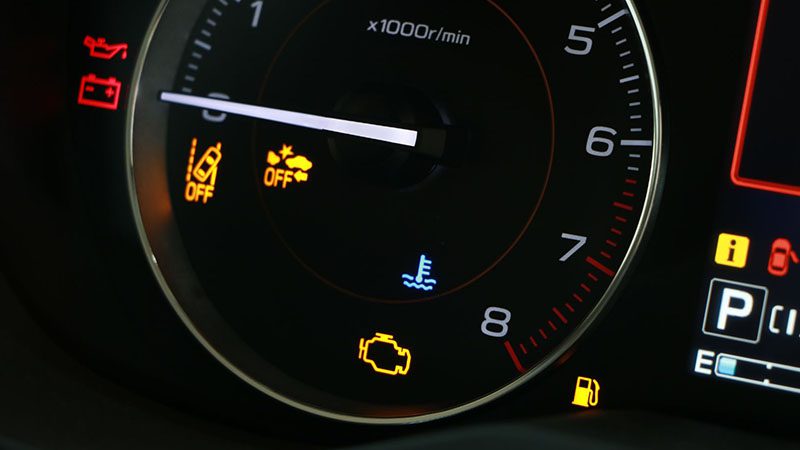
How to Check the Engine Air Filter In Your Car?
A regular inspection of the engine air filter is the easiest way to catch early signs of trouble, and the best part is that you can do this yourself with ease.
The air filter is part of the intake manifold and is extremely accessible on most vehicles. Pop the hood, and find the air filter housing or the air box.
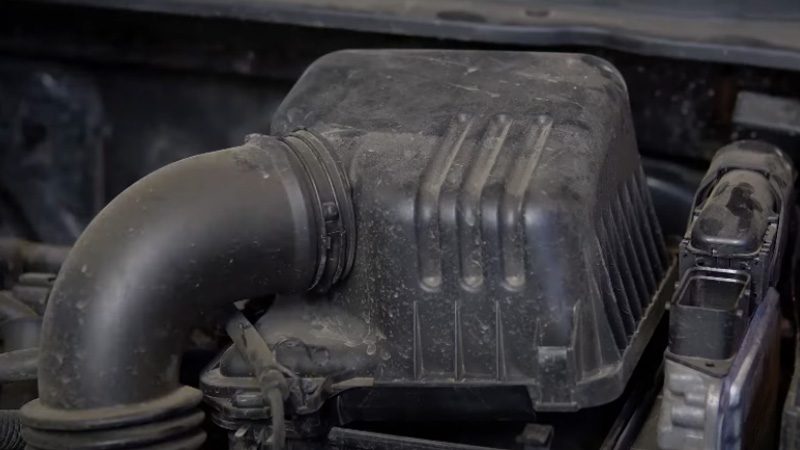
The air box just has a couple of clips on the side of it that you undo, and you can separate the housing of it. Then, give it a couple of shakes to free it, and then pull the air filter right out with your hand.
Once you get the air filter out, you have a couple of different options. The first one is to clean it if it’s not in bad shape. For instance, if the filter is not too dull/dark in color or the light passes through when you see through it, cleaning is enough.
How to Clean the Engine Air Filter
You’ll notice that there are probably a lot of leaves and dirt in there that you can simply pull out, and then you can bang your air filter on the ground to release a bunch of the dirt and dust as well.
Alternatively, use a fan blower or the exhaust side of your vacuum cleaner to blow out all the debris.
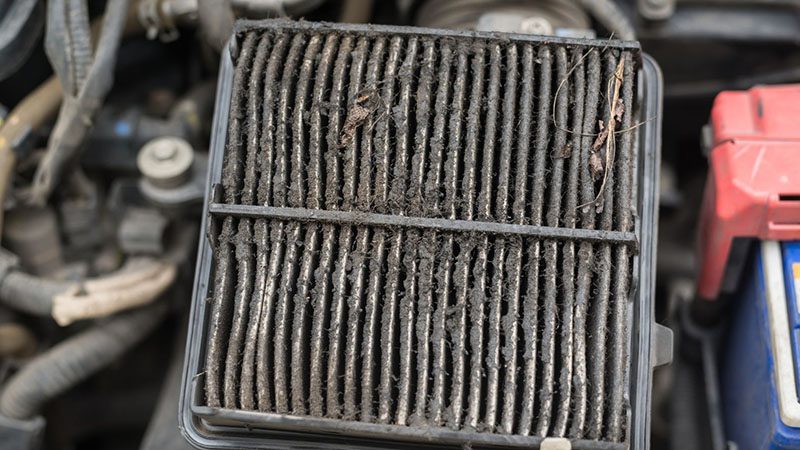
There are also air filter cleaning kits out there, which cost you between $15 and $20. Finally, put the air filter back in the air box, clip it, and it’s done.
How to Replace the Engine Air Filter
If the condition of your air filter is such that it’s too discolored, the light won’t pass through it, you have driven a lot of miles with it, or when you open up the fins, and the inside is filthy or bent, get a new factory one in.
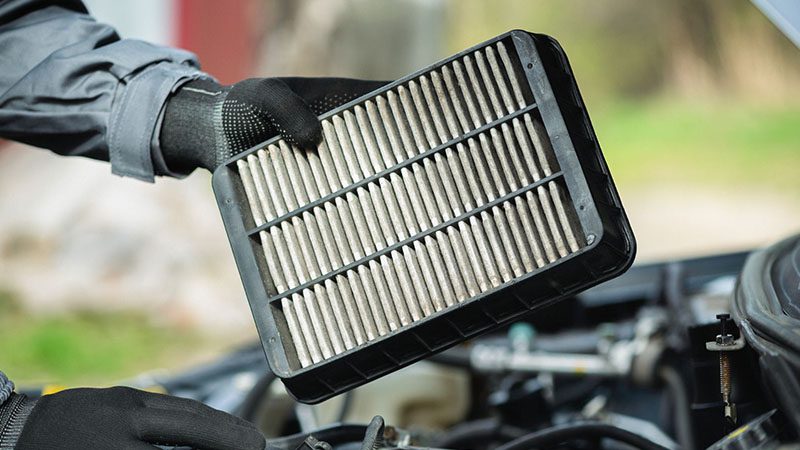
Although you can find a cheap aftermarket air filter for your car, it is highly recommended that you go for the OEM part because you just can’t compromise on your engine’s breathing.
The process is the same as what you have done while you took out the air filter for cleaning, but this time, simply discard the old one and pop in the new one inside the air box. Clip it and that’s about it.
Conclusion
So, now you know how often you need to change the engine air filter. It’s not only about mileage but also your driving habits and road conditions.
At Woda, we provide high-quality automotive engine parts so that the vehicles perform at their best. No matter if you’re a car enthusiast or a professional, our durable parts deliver dependable results. For a trusted auto engine parts supplier, contact us today.
